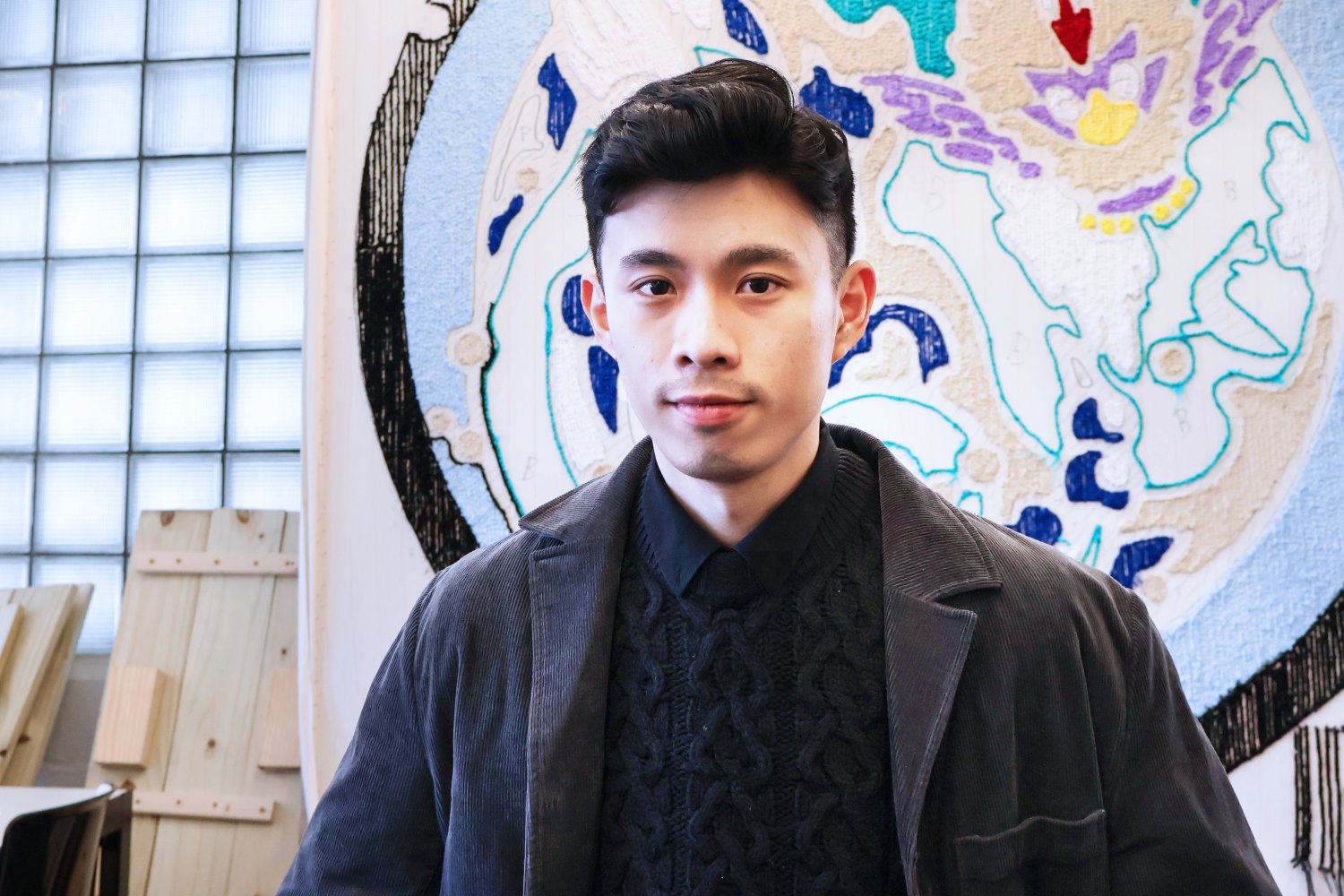Introduction to Alexander Htet Kyaw
The speed with which new technologies hit the market is nothing compared to the speed with which talented researchers find creative ways to use them, train them, even turn them into things we can’t live without. One such researcher is MIT MAD Fellow Alexander Htet Kyaw, a graduate student pursuing dual master’s degrees in architectural studies in computation and in electrical engineering and computer science.
Combining Technologies for Human-AI Workflows
Kyaw takes technologies like artificial intelligence, augmented reality, and robotics, and combines them with gesture, speech, and object recognition to create human-AI workflows that have the potential to interact with our built environment, change how we shop, design complex structures, and make physical things.
Curator AI: Revolutionizing Online Furniture Shopping
One of his latest innovations is Curator AI, for which he and his MIT graduate student partners took first prize — $26,000 in OpenAI products and cash — at the MIT AI Conference’s AI Build: Generative Voice AI Solutions, a weeklong hackathon at MIT with final presentations held last fall in New York City. Working with Kyaw were Richa Gupta (architecture) and Bradley Bunch, Nidhish Sagar, and Michael Won — all from the MIT Department of Electrical Engineering and Computer Science (EECS). Curator AI is designed to streamline online furniture shopping by providing context-aware product recommendations using AI and AR.
How Curator AI Works
The platform uses AR to take the dimensions of a room with locations of windows, doors, and existing furniture. Users can then speak to the software to describe what new furnishings they want, and the system will use a vision-language AI model to search for and display various options that match both the user’s prompts and the room’s visual characteristics. “Shoppers can choose from the suggested options, visualize products in AR, and use natural language to ask for modifications to the search, making the furniture selection process more intuitive, efficient, and personalized,” Kyaw says.
Estimate: A Game-Changer for Small Businesses
Another example of Kyaw’s work is Estimate, a product that he and three other graduate students created during the MIT Sloan Product Tech Conference’s hackathon in March 2024. The focus of that competition was to help small businesses; Kyaw and team decided to base their work on a painting company in Cambridge that employs 10 people. Estimate uses AR and an object-recognition AI technology to take the exact measurements of a room and generate a detailed cost estimate for a renovation and/or paint job.
Unlog: Sustainable Building Materials
Unlog represents the possibility that structures can be built directly from a whole log, rather than having the log travel to a lumber mill to be turned into planks or two-by-fours, then shipped to a wholesaler or retailer. It’s a good representation of Kyaw’s desire to use building materials in a more sustainable way. A paper on this work, “Gestural Recognition for Feedback-Based Mixed Reality Fabrication a Case Study of the UnLog Tower,” was published by Kyaw, Leslie Lok, Lawson Spencer, and Sasa Zivkovic in the Proceedings of the 5th International Conference on Computational Design and Robotic Fabrication, January 2024.
Active Bending in Physics-Based Mixed Reality
Another system Kyaw developed integrates physics simulation, gesture recognition, and AR to design active bending structures built with bamboo poles. Gesture recognition allows users to manipulate digital bamboo modules in AR, and the physics simulation is integrated to visualize how the bamboo bends and where to attach the bamboo poles in ways that create a stable structure.
BendShelters: Providing Sustainable Shelters
Kyaw pitched a similar idea using bamboo modules to create deployable structures last year to MITdesignX, an MIT MAD program that selects promising startups and provides coaching and funding to launch them. Kyaw has since founded BendShelters to build the prefabricated, modular bamboo shelters and community spaces for refugees and displaced persons in Myanmar, his home country.
Conclusion
Kyaw’s work is a testament to the potential of technology to improve our daily lives and create a more sustainable future. His innovative projects, such as Curator AI, Estimate, Unlog, and BendShelters, demonstrate the power of combining different technologies to create human-AI workflows that can interact with our built environment and change the way we live and work.
FAQs
- What is Curator AI?
Curator AI is an AI-powered platform that provides context-aware product recommendations for online furniture shopping using AR and AI. - What is Estimate?
Estimate is a product that uses AR and object-recognition AI technology to take the exact measurements of a room and generate a detailed cost estimate for a renovation and/or paint job. - What is Unlog?
Unlog is a project that represents the possibility of building structures directly from whole logs, reducing the need for lumber mills and shipping. - What is BendShelters?
BendShelters is a startup founded by Kyaw that builds prefabricated, modular bamboo shelters and community spaces for refugees and displaced persons in Myanmar.











